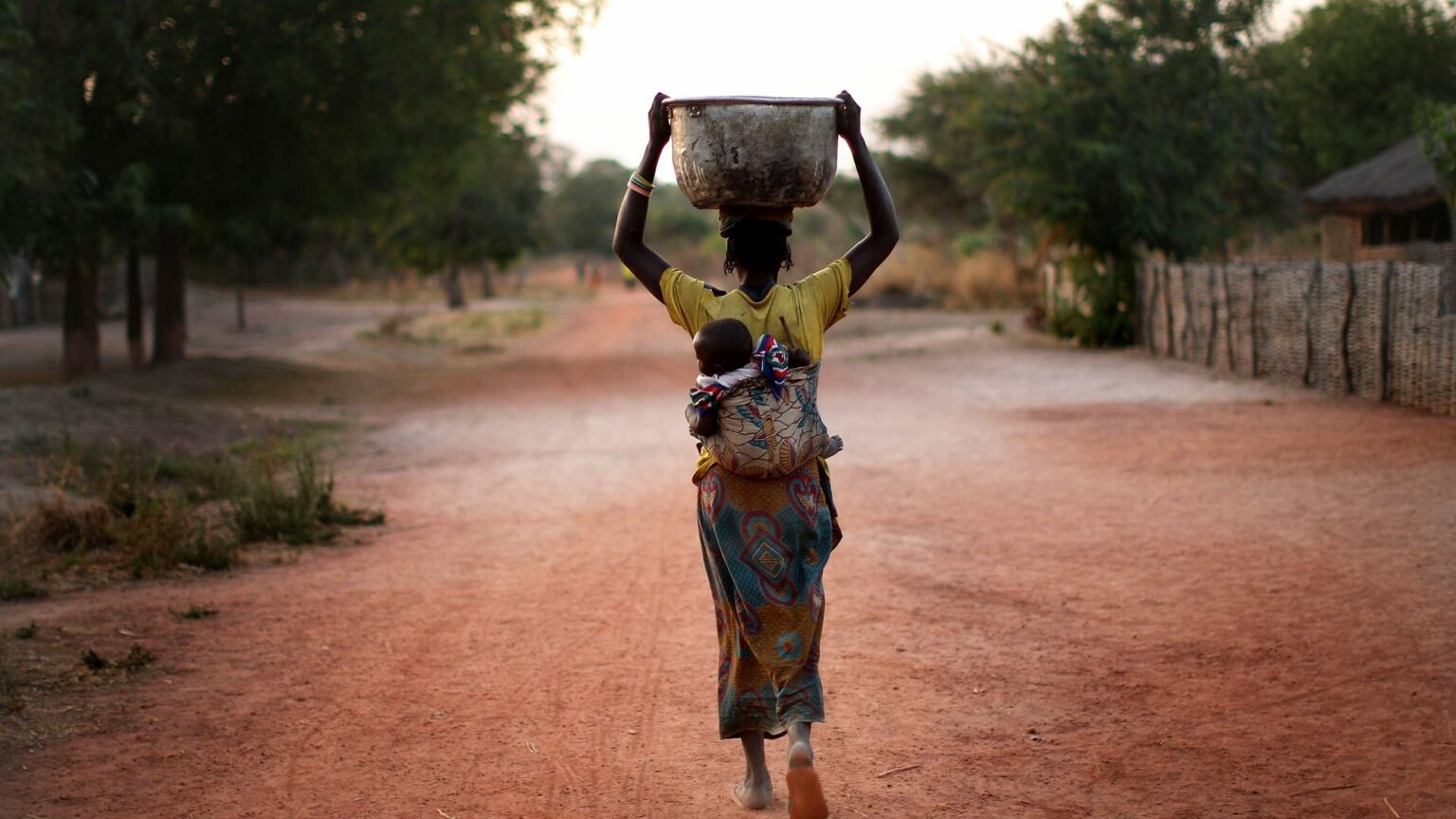
The reparations trap
Elite guilt about the past will do nothing to help the world’s poorest.
Want to read spiked ad-free? Become a spiked supporter.
Donate to spiked this Christmas, and help keep us free, fearless and independent.
For today’s progressive left and its corporate backers, the past increasingly determines the future. At home and abroad, they seek to remedy historical guilt. So, in recent months, progressive elites have embraced affirmative action and reparations for anyone whose ancestors have ever been poorly treated by those dastardly people of European descent.
America’s regime of preferential treatment for particular racial groups is deeply entrenched in its political class. Yet a fight is brewing. Next spring, the US Supreme Court is expected to rule that race-based admissions policies at universities like Harvard and the University of North Carolina are unconstitutional. This ruling could have far-reaching ramifications in education and beyond.
The use of policy to address past wrongs was also a theme at the recent COP27 climate summit. Rather than seeking to modernise developing countries, global grandees have opted for what they call ‘climate justice’ – that is, the idea that industrialised countries’ carbon emissions to date are a historical injustice for which they must now repent. Accordingly, the billionaires of Silicon Valley, London and Wall Street, as well as born-again eco-zealots like President Biden, hope to pave the political way to a CO2-free utopia by paying ‘climate reparations’ to the Global South.
Biden’s embrace of so-called climate justice on the international stage parallels his embrace of racial equity at home, in which preferential treatment is dished out specifically to black people, from mortgage holders and farmers to those needing vaccinations. To this end, Biden has even changed the Democratic primary system, putting the presidential nomination to the overwhelmingly black South Carolina caucus first. This move gives huge influence over the presidential candidate to voters in a state that reliably votes Republican in virtually every state and national election.
Affirmative action, racial preferences and other guilt-driven approaches, despite enjoying such wide acceptance in the political class, have had little noteworthy success to date. Billions of dollars in aid have been handed out to Africa over the years, but this has done little to help its economic development. In the coming recession, Africa’s situation is likely to get even worse. Instead, more progress has been made by countries, notably in East Asia, which have relied instead on capital imports, savings, trade and self-reliance to boost their economies.
America’s commitment to wage a ‘war on poverty’ has also been less than effective. In the 50 years since it began in 1964, over $20 trillion has been spent on welfare programmes. Yet, in 2020, the ratio of incomes between blacks and whites is the same as it was in 1968. Nor has the black middle class expanded beyond its stunning postwar gains. Despite decades of affirmative action, the percentage of blacks in elite colleges has fallen, reflecting in part the utter failure of many school systems in large cities. And black poverty, largely concentrated among families without fathers, has not decreased in recent decades. One in five black Americans is now experiencing a third generation in poverty, compared to only one in 100 whites.
Basically, what has ‘improved’ are the optics, with more ‘people of colour’, women and transgender people in public roles. In the climate movement, for instance, leaders from poor countries are placed on the dais next to the corporate and bureaucratic green elites who are overwhelmingly white. While this may suit public-relations consultants, in reality it solves nothing. Poor countries do not need lectures on climate change from the rich world, nor do they need reparations to achieve ‘climate justice’. What they need, above all, is cheap energy.
So COP27’s ambitions will likely fail. As climate scientist Roger Pielke Jr’s ‘iron law of climate policy’ suggests, sensible governments will always opt for electricity, gas and feeding their population over reducing emissions. We are already seeing this play out. Even as comfortable politicians in the West restrict access to fossil fuels, effectively advocating ‘de-growth’ for the world’s poorest nations, such an approach is dismissed by many sceptical African leaders. They know that developing a reliable electricity supply is critical to reducing poverty.
Similarly, America’s embrace of racial preferences provides superficially good optics but few positive effects. Racial preferences may have occasioned the rise of the black political class over the past half a century, but they have made little difference in terms of black people’s overall income and educational attainment, which is either stagnating or getting worse. Similarly, the Obama administration’s eight years in power was wonderful for the ‘talented tenth’ among African-Americans, but it did not improve life for most. In terms of actual results, black Americans actually did better in the first years of the widely and deservedly ridiculed Donald Trump.
The latest trend in preferential treatment comes from California, where the state’s nine-member reparations taskforce last month recommended large state payments to descendants of slaves. It suggested compensation of around $223,200 per person, at a cost of $569 billion. If rolled out nationally, estimates put the cost of reparations at over $14 trillion.
California, never a slave state, is a strange place to start compensating descendants of slaves. What’s more, it also has a relatively small black population – less than seven per cent. In fact, it historically discriminated more openly against Asians, while also dispossessing many of the original Mexican and Native American populations. Asians, in particular, were targeted by pogroms and openly racist laws throughout the late 19th and early 20th centuries.
So by favouring only black Americans, the reparations effort seems likely to create more racial antagonism among minorities. For one thing, not all black people in the US are descendants of slaves – roughly one fifth are immigrants or their offspring. Meanwhile, the black population as a whole will be less influential as the number of non-whites in the US lurches towards an absolute majority by the middle of this century. By 2050, according to Pew, Hispanics will swell to 29 per cent of the population, more than twice the black share. Asians, meanwhile, will grow from a population of almost 12million in 2000 to more than three times that number by 2050. Taken together, Asians and Latinos will account for 40 per cent of Americans, and the vast majority of non-whites. Amid these changing demographics, the Democrats will want to avoid a reputation for favouring only one specific minority constituency.
In any case, the history of Asians in Anglophone countries does not sit comfortably with the narrative that historical discrimination must be addressed to achieve equal outcomes. Asians, easily the largest racial-minority groups in Australia and Canada, can well claim to have suffered past discrimination, including in their ancestral homelands (remember the Raj, for instance). But they have also done very well in the West, despite its alleged ‘systemic racism’. In Canada, the US and Australia, Asians typically outperform whites in education as well as income, even as other minorities do worse. Whites tend to sit in the middle.
Indeed, it is largely discrimination against Asians that underpins the affirmative-action cases that will be brought to the US Supreme Court. As it turns out, preferences for some means discrimination against others.
The great irony of racial preferences and other ‘corrective’ measures is that they imply that minorities need a leg-up from the very same people activist academics denounce as irredeemably racist and exploitative. Whether domestically or across the world, the notion that non-European peoples lack agency seems to be a core belief among our new ‘enlightened’ colonialists. Yet such policies are invariably counterproductive. As John McWhorter has long argued, these preferential policies encourage ‘therapeutic alienation’ among black people and other minorities – leading some to adopt a mentality of ‘anger and scapegoating’ instead of doing ‘the work needed for success’.
So rather than self-flagellating reparations or expanding what Marx derided as the ‘proletarian alms-bag’, a far better approach would be to address the causes of poverty and lack of upward mobility. Corporate mea culpas about the impacts of climate change and racism won’t make things better for the poor and struggling around the world. A better solution lies in increasing people’s productive capacity – through rigorous education, access to capital and support for families. All of this helps people to progress on their own. Whether in developing countries or the slums of the West, hope lies not in recompense for things that occurred long ago, but in policies for the future. Elite guilt about the past will do nothing to improve the future.
Joel Kotkin is a spiked columnist, the presidential fellow in urban futures at Chapman University and executive director of the Urban Reform Institute. His latest book, The Coming of Neo-Feudalism, is out now. Follow him on Twitter: @joelkotkin
Picture by: Getty.
Who funds spiked? You do
We are funded by you. And in this era of cancel culture and advertiser boycotts, we rely on your donations more than ever. Seventy per cent of our revenue comes from our readers’ donations – the vast majority giving just £5 per month. If you make a regular donation – of £5 a month or £50 a year – you can become a and enjoy:
–Ad-free reading
–Exclusive events
–Access to our comments section
It’s the best way to keep spiked going – and growing. Thank you!










Comments
Want to join the conversation?
Only spiked supporters and patrons, who donate regularly to us, can comment on our articles.